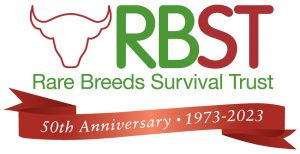The awards categories in 2025 have been amended from last year to recognise the areas that have created the most interest amongst the industry. Our aim is to bring together entries from across Scotland celebrating sustainability and excellence in food and farming.
Sustainable Small Farm of the year – sponsored by Smallholding Scotland
The winner of this category will most likely:
- Be a croft or smallholding or small perhaps tenanted farm
- Be operating commercially albeit on a small scale, and with the farm not always the sole source of income, or perhaps with an innovative diversification
- preferably has a focus on rare or native breeds of livestock or equines
- use and promote regenerative methods
- created new habitats and environments on their land that improve biodiversity

Sustainable Farm of the year – sponsored by Burness Paull
The winner of this category will most likely:
- Be a larger commercial (mixed) farm which has developed or embraced new ways of working to reduce inputs, maximise outputs and /or create new products or markets,
- preferably has a focus on rare or native breeds
- used and promoted regenerative methods
- have created new habitats and environments on their land that improve biodiversity and enhance soil
- have introduced new husbandry methods that have reduced use of antibiotics and lengthened useful life

Rare Breed Survival Trust Champion of the year – sponsored by RBST
This award will recognise the person or business who has been a real champion over the previous year for rare and native breeds of farm livestock, poultry or equines in Scotland. This category is the widest and reflects the wide range of people and organisations involved in the promotion of native breeds. They will probably be:
- A breeder who has been successful at improving the prospects of one of our watchlist breeds
- An administrator who has enhanced the prospects of a watchlist breed through support and encouragement of others
- A volunteer who has successfully showcased the great opportunities and attractions of native breeds through the media, in the showring or at other public events

Sustainable Food Producer of the year – sponsored by Scotland Food & Drink
This category is aimed at Producers based in Scotland who are:
- visibly committed to a high level of sustainable production
- demonstrating local supply, low produce miles, low inputs
- preferably working with native breeds or other traditional livestock
- maximising outputs through diversification
- A chef who is buying direct from local suppliers and local butchers
- Chef using and promoting native breeds meat or other traditional produce
- A chef who is buying and promoting ‘top to toe’
- judges will be particularly interested in anyone commercially selling produce from livestock on the RBST Watchlist

Sustainable Retail outlet of the year
This category is targeted at permanent retail outlets (permanent or temporary) on high streets, on farm, in rural locations who:
- promote and supplying produce from rare and / or native breeds of livestock
- work with and promote local suppliers, encourages them and supports them
- treat local suppliers in a fair way
- understand and promote the local heritage of produce
- Offer any and all types of food (meat, cheese, dairy, etc) and / or other sustainable produce from native breeds such as wool and wool products, soap, horns, skins.
This category will include farmers markets, single farm outlets and those selling online
Sustainable Product of the Year
The winner of this category could come from a position as a supplier to farms, a farm supplying to others or individuals creating a product:
- Be a manufacturer who has developed a new product that enhances the sustainability of the farm in terms of its environmental footprint
- Be an organisation that develops a new product or promotion using native breeds to enhance on farm profitability and environmental benefit
- Be a farm business or individual who has developed, packaged or promoted a new approach to selling produce from native breeds
- Created niche products that showcase new thinking